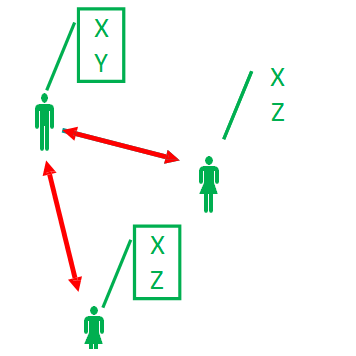IUSSP Workshop on the science of choice:
How to model the decision-making process?Rostock, Germany, 28-30 October 2015
Organized by: - the IUSSP Scientific Panel on Microsimulation and Agent-based Modeling - and the Max Planck Institute for Demographic Research (MPIDR) IUSSP Scientific Panel on Microsimulation and Agent-based Modeling  Chair: Frans Willekens (MPIDR) Chair: Frans Willekens (MPIDR)
Members: Alexia Fürnkranz-Prskawetz (Vienna Institute of Demography) and Jakub Bijak (University of Southampton)
- Workshop coordinator: Anna Klabunde (MPIDR)
- Administrative and secretarial support: Ute Papenhagen (MPIDR)
The aim of the three-day workshop was to discuss (a) perspectives on how individuals make decisions and (b) alternative probability models of decision-making processes. Decisions are embedded in a context: Contextual factors and processes influence the decisions individuals make. The outcome of the decision process consists of two components: the decision and the time to decision (decision time or deliberation time). The workshop focused on life decisions, i.e. decisions that shape the life course. Examples of life decisions are: - Choice of lifestyle: how to live and behave?
- What friends to choose and how to build a friendship network?
- When to start a long-term partnership and who to partner with?
- Whether to get married, cohabit, or “live apart together” (LAT)?
- Whether to have children or not? To have another child?
- What occupation to choose?
- What job offer to accept? Is it time for a job change?
- Whether to buy or to rent a home?
- When to retire?
- Whether to emigrate or not? Where to emigrate?
- How to prepare yourself for life contingencies?
- Whether to save for old-age care, or rely on family and friends?
Forty researchers from 11 countries attended the workshop. Participants consisted of demographers, sociologists, economists, psychologists, anthropologists, statisticians, mathematicians and computer scientists. Nineteen papers were presented including a keynote address on Modeling Choice by Professor Joan Walker of the University of California, Berkeley. 
Participants approached decision-making from different perspectives. There were theoretical contributions, experimental studies, regression-based methods, interview methods and simulation studies.
An important conclusion is that the understanding and the prediction of demographic trends require a sound understanding of the behavioural mechanisms that underlie individual decisions and actions. Modeling and simulation facilitate the comprehension of the nature and effects of multiple and interacting processes. Read: • The seminar report, programme and participant list. • The Working Papers • The slides and videos of presenters who agreed to share them are accessible via the programme page in "working papers" - member-restricted). Funding: The workshop was funded by the Max Planck Institute for Demographic Research (MPIDR) and the International Union for the Scientific Study of Population (IUSSP). |